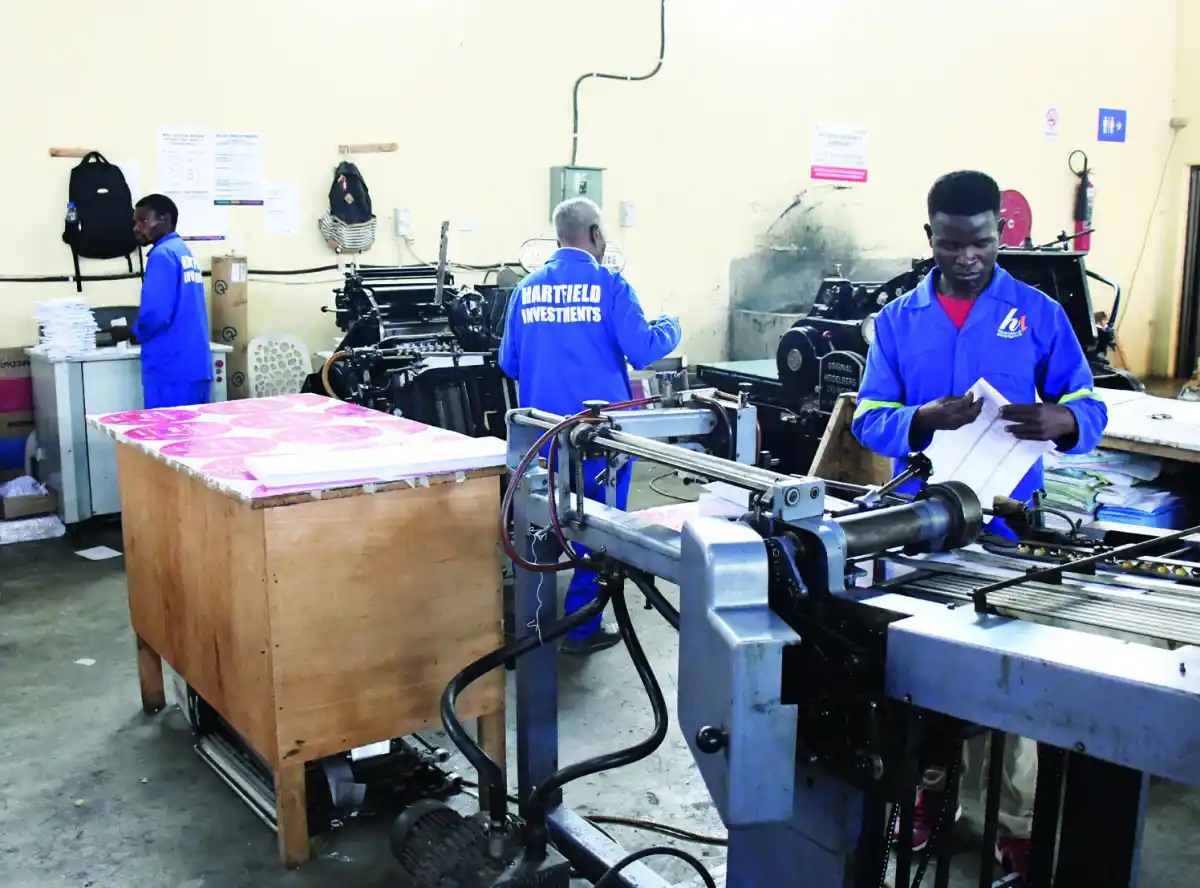

Brown Chipapi is a 39-year-old ambitious local entrepreneur.
He is on a mission to expand his business to manufacturing combat motor vehicles in the heart of the commercial city, Blantyre.
Like many Malawian youths, Chipapi went to South Africa in search of greener pastures a few years back.
Compelled by the knowledge acquired there, he returned home to venture into entrepreneurship.
His first shot was at trading in second hand motor vehicle parts.
His passion and enthusiasm saw him thrive and become one of the top dealers in the city and beyond.
He called his business Brown Motors.
Chipapi then diversified into manufacturing metal agriculture accessories such as sprinklers, trailers, underground tanks, thereby mastering metal fabrication works. For example, further to agriculture-related products, he makes tablet cages for the Ministry of Education.
No sooner had he made inroads into the manufacturing business than he became an employer of other youths under his new company Brown Trailers Manufacture.
The businesses were booming.
Alas, in 2020, Covid pandemic reached its peak and businesses plummeted.
Chipapi’s businesses were threatened; there was no money to pay his workers as there were not many orders for his products.
Just when he was about to throw in the towel and send his workers home, came the Financial Inclusion and Entrepreneurship Scaling (FInES) project.
He applied and got a loan, just above K60 million.
“That time, we bought machines, we increased the number of workers in the factory and pushed word of what we were doing through marketing. Now, we are picking up both in business and production. I am not a fan of loans but we looked at the interest rate and it was manageable,” Chipapi said.
He was quick to express concern, however, that there is little support for their products from the local market.
“The most surprising thing is we are getting customers from outside the country. The problem with people is that they prefer buying outside. How are we going to save our economy if we are still spending $10,000 outside on products we are able to make?
“Sometimes our products are durable and customised to local conditions. For example, the trailers here are very rigid. We have designed these agriculture trailers with our terrain in mind. I think the challenge we have is mind-set,” Chipapi said.
He added that he will not relent until import substitution for such agriculture products is achieved and that within two years, he is going to start producing military vehicles.
His story is not different from that of Sinai Mwagomba, Managing Director of BenCal Technologies Limited. They offer calibration services in Malawi.
He explains that for a long time, the firm needed financing to grow the business but even commercial banks could not buy into the idea.
“We were developing a fuel tanker calibration so that we could calibrate fuel tankers. As such, we needed that financing. And then we had some projects that we also needed some capital to accomplish. That’s why we really benefited from the funding. We tried banks before, especially when we were starting up this company. We had a vision, but we didn’t have the money. I tried several banks. They all turned us down,” Mwagomba said.
He added: “This is the first loan, actually, that we got. Very fair, very small interest. I think it was almost free to us, so it’s quite very important.”
Another beneficiary of the project, who is also Managing Director of Hartfield Investment Harrison Longwe, said the project has been essential in the context that it helps to sustain businesses and improve their capacity.
One thing that such entrepreneurs agree on is the need to continue the project beyond the scheduled end in 2025.
They emphasise that having sustained their businesses from the pangs of Covid, given more cheaply and patient financing can grow such businesses and graduate from the SME status.

FInES Project Manager Ralph Tseka said there is a huge need for a successor project as most entrepreneurs are actually crying for more funds to make more investment.
“These funds were actually provided to boost the small-scale businesses from the effects of Covid and after the effects, what has actually transpired is that they are now on a level that they are actually producing. Now they really want to fly. It is at this level that they need more capital,” Tseka said.
In an interview, Principal Secretary in the Ministry of Finance Jacob Mazalale said, already, the government is contemplating crafting another project to continue aiding small and medium scale entrepreneurs with cheap and patient capital.
Mazalale said the government understands that one of the shortest ways in which the country will grow is to further improve the engagement of the private sector.
“The government is excited to encourage the indigenous business community to participate in economic activity and one of the sure ways of making that is to make capital available to the private sector. The government is talking of a development bank, of which conversations are taking place, and we hope that more and more of such similar facilities as the FInES project will be made available and that the private sector will keep benefiting.
“For capital that is available, that is very much tailor-made to their needs and that is aimed at making sure that the private sector is contributing to the growth of the economy. So, we should expect a successor project, but I want to add that it will not only be the FInES, there will also be other facilities put in place to encourage the private sector to participate and lead in the growth efforts of the country,” Mazalale said.








0 Comments